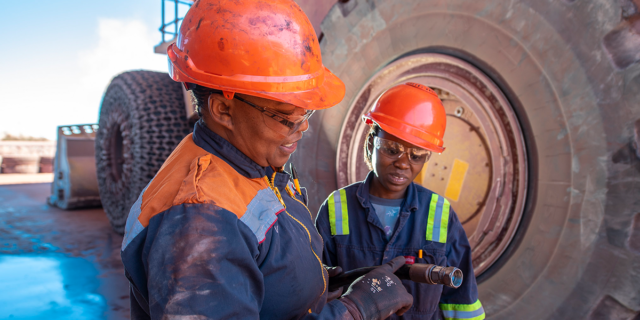Including women in decision-making is essential to ensure that the extractive sector is managed in the interests of all citizens. On International Women’s Rights Day earlier this month, we looked at some examples of how EITI countries are making progress in tackling gender inequality:
Argentina: The national platform “Information System Open to the Community on Mining Activity” provides gender-disaggregated data on employment, wages, province and sub-sector.
Burkina Faso: In 2022, the government published a study (FR) that provides a diagnosis of gender-based violence in the country’s mining sector, and recommendations on concrete actions needed to address and mitigate the problem.
Colombia: In addition to disaggregating employment data by gender and occupational level, Colombia’s EITI reporting includes data on the salary ranges of direct and indirect employees, both men and women.
Mexico: The EITI report includes information on gender-related programmes and activities organised by the state-owned company Pemex. The training covered topics such as masculinities, sexual diversity and prevention of gender-based violence, among others.
Mozambique: The government and civil society jointly organised a national conference on strengthening the role of Parliament in ensuring that the extractive sector benefits women, specifically through gender-sensitive revenue management policies and practices.
Philippines: Citing an EITI Philippines study on gender in the mining sector, the country’s Department of Environment and Natural Resources urged the mining industry to work together to ensure that the sector becomes an enabling and empowering environment for women. This video explains how gender data shapes more inclusive policies. Senegal: The EITI statement (FR) showed that women make up less than 10% of the extractive sector workforce. This data has fuelled public debate on diversity in the sector, and has been used by civil society groups to advocate for reforms.
Sierra Leone: In 2021, Parliament introduced the Women’s Empowerment Bill. Based on this, the EITI Multi-Stakeholder Group has integrated gender diversity into its strategic planning and implementation, and increased its female membership from five to nine. Read more (FR) about how the EITI Standard is being used to promote more equitable participation in the extractive sector.
Related topic: This infographic by the Intergovernmental Forum on Mining, Minerals, Metals and Sustainable Development (IGF) and partners provides an overview of women’s participation in the large-scale mining workforce.
Summary by Elie KABORE










